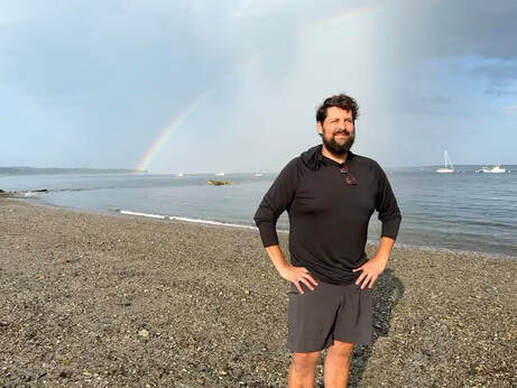Gregory Brown is the author of the novel, The Lowering Days, which has been translated into multiple languages, was a Publishers Marketplace buzz book, a Goodreads best debut novel, a Library Journal best debut novel, longlisted for the VCU Cabell First Novelist Award, and won an AudioFile Magazine Earphones award.
His short stories have appeared in several publications, including Tin House, Alaska Quarterly Review, Shenandoah, Epoch, Prairie Schooner, River Styx, and Narrative Magazine, where he was a winner of the 30Below Prize. His essays and criticism have appeared in The New York Times, LitHub, The Millions, The Chicago Tribune, The Rumpus, American Short Fiction, and other publications.
A graduate of the Thomas College, Columbia University, and the Iowa Writers' Workshop, where he was a Teaching-Writing Fellow, his work has been supported by fellowships and awards from MacDowell, The Hillholm Writing Residency, the Bread Loaf Writers' Conference, and the Napa Valley Writers' Conference.
Believer that mycelium might save the world, ecology is inherently queer, and that most things are better done bare foot. Based in Maine, on unceded Wabanaki territory, where he grew up and lives with his daughter, amazingly talented spouse, and many dogs.
His short stories have appeared in several publications, including Tin House, Alaska Quarterly Review, Shenandoah, Epoch, Prairie Schooner, River Styx, and Narrative Magazine, where he was a winner of the 30Below Prize. His essays and criticism have appeared in The New York Times, LitHub, The Millions, The Chicago Tribune, The Rumpus, American Short Fiction, and other publications.
A graduate of the Thomas College, Columbia University, and the Iowa Writers' Workshop, where he was a Teaching-Writing Fellow, his work has been supported by fellowships and awards from MacDowell, The Hillholm Writing Residency, the Bread Loaf Writers' Conference, and the Napa Valley Writers' Conference.
Believer that mycelium might save the world, ecology is inherently queer, and that most things are better done bare foot. Based in Maine, on unceded Wabanaki territory, where he grew up and lives with his daughter, amazingly talented spouse, and many dogs.

